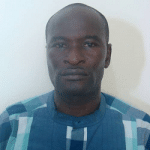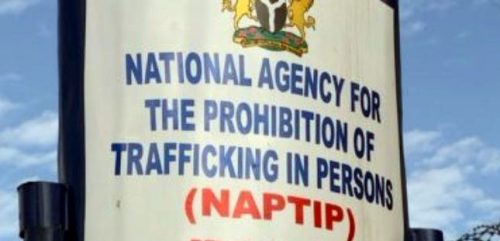More Nigerians have access to phones than proper sanitation – UNICEF

…Says Nigeria loses N455bn annually due to poor sanitation
The United Nations Children Fund (UNICEF) has said that with about 150 million mobile subscribers in Nigeria, 97.2 million internet users and 81℅ penetration, only 97 million Nigerians have access to improved sanitation.
According to Mr. Zaid Jurji, Chief of Water, Sanitation and Hygiene (WASH) department of UNICEF, Nigeria losses N455 billion annually due to poor sanitation practised around the country.
Speaking during a media dialogue on WASH organised by the Federal Ministry of Information, in collaboration with the European Union (EU) and UNICEF on Monday in Port- Harcourt, the Rivers State capital,
Jurji said that the real cost that Nigeria losses annually amounts to N455 billion due to poor sanitation which results in deaths, low productivity and ill-health suffered by Nigerians.
He said, “Nigeria losses N455 billion every year as a result of poor sanitation which escalates to deaths, stunting, malnutrition, loss of dignity, insecurity, low productivity and loss of GDP”.
Jurji explained that access to basic water and sanitation services in the Nigeria facilities such as communities, school, Hospitals, and markets/parks are 20.4 percent, 17 percent, 22.7 percent and 12.4percent respectively, adding that 47 million Nigerians still practise open dedication.
He lamented that sanitation sector in Nigeria is severely under resourced, with only 19% of WASH budget annually, adding that it would be very difficult to meet the Sustainable development goals in 2020.
He said “Only 20.1% of households have a fixed place for unleashing facility with soap and water. 10.4% households have suffered diarrhea in the past 6 weeks, 75% are children under 5 years. Only 6.4% of households at likely to practice proper handwashing (with water and soap), at critical times.
“The key issues of the sanitation sector in Nigeria includes low political and financial commitment, low private sector participation, weak institutional arrangement and limited technical know-how, lack of technology to meet geographical condition
“Nigeria has a population of 198 million and 93 million children. 1 million Nigerians under the age of 5 die annually as a result no proper sanitation. 20.4% of the population have access to basic water and sanitation services. That is those using improved sanitation Facilities.
“17.0% of schools have access to basic supply and sanitation services that is schools with functional and improved toilets and latrines available at all times. 22.7% of health facilities have basic water supply and sanitation services. 12.4% of markets and motor parks have basic water supply and sanitation services,” Jurji added.
While stressing that only 11% of the systems meet the minimum requirements for WASHCOM, frequency and tariff, the UNICEF chief added that about 130 million people in Nigeria are without proper access to sanitation.
“34.6% (66million) have improved latrines. 4. 4% (8.4 million Nigerians have improved latrines, private, functional and accessible to the people. 20.4% (39 million) unimproved latrines, Hygienic separation of human faeces from human contact.
“5.5% schools have basic gender sensitive WASH services, functional water facilities and durable improved toilets with separate blocks for males and females available. 49.3% schools have at least one improved toilets and latrines.
33.6% health facilities have hand washing facilities with soap and water. 43.2% health facilities have functional improved water supply in the premises,” he added.
Earlier, Engineer Emmanuel Amatemeso, Acting Permanent Secretary, Ministry of Water Resources, Rivers State, who represented the Commissioner for Resources, Kaniye Ebeku, commended UNICEF and partners for what they are doing in the state but urged them to increase funding in the state because of the peculiar nature of the state.
He said Rivers State has a peculiar area that makes it very expensive to transport materials to project sites and added that there is need for UNICEF and partners to beef up their activities in the state.
On her part, Eliana Drakopoulos, Chief of communication, UNICEF, in her remarks, said that the WASH programme aims at improving feeding, hygiene and sanitation to reduce stunted growth and malnutrition in Nigeria, adding that UNICEF will focus more in ensuring early education for children and reduce violence against children.
She added that 130 million of the Nigerian total population lacks access to proper sanitation, with 93 million children where 1 million children under age 5 die annually and 1 out of every 4 routinely vaccinated.










